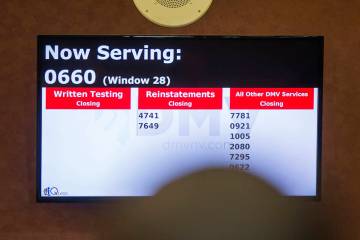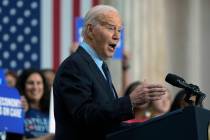EDITORIAL: Get Medicare on sound fiscal footing before adding new benefits
Nowhere is the gaping disconnect between Democratic aspirations and fiscal reality more clear than when it comes to entitlement spending — particularly on Medicare.
In August, the latest Medicare Trustees Report delivered sobering news. The previous year had brought little relief to the insurance trust fund that pays hospitals — Part A — and it remains on track to become insolvent in five years. If trends continue, Medicare will be able to pay just 91 percent of its obligations by 2026, with the deficit increasing in the following years.
This will lead to predictable results, as the government cuts payments to doctors and hospitals, leading some to leave the system entirely, shrinking health care options for seniors.
In addition, the looming deficits could very well be higher than anticipated because the report, as Reason magazine pointed out, makes various fiscal assumptions about temporary cost-cutting measures becoming permanent.
It is against this backdrop that Sen. Bernie Sanders, I-Vt., proposes a massive expansion of Medicare benefits as part of the Build Back Better Act now pending in the upper chamber. Sen. Sanders seeks to add dental, vision and hearing coverage, which a 2019 congressional report estimated would cost $358 billion over 10 years. That’s almost certainly a low-ball number. When Medicare was originally conceived, long-term cost estimates turned out to be significantly miscalculated even when adjusted for inflation, which is all too common for massive government spending initiatives.
Sen. Sanders and his supporters claim that higher taxes on corporations and the wealthy, along with savings from allowing the government to negotiate with drug makers, will cover the costs of the expanded entitlement. They also argue that the new benefits will fall under the umbrella of Medicare Part B rather than the hemorrhaging hospital insurance trust fund.
But it’s not clear that price negotiations for prescription drugs will accomplish anything other than discouraging innovation in the U.S. pharmaceutical industry, which develops the bulk of new medications that enter the marketplace. And the fact that Beltway politicians have let Medicare Part A get to this point should raise concerns about the long-term health of the program’s other components.
“My big concern right now is the 2026 deadline (for) Medicare insolvency. … “You’ve got to stabilize that first before you look at basically expansion,” said Sen. Joe Manchin, D-W.Va., “So if we’re not being fiscally responsible, that’s a concern.”
Sen. Manchin is no spendaphobe, but — once again — he represents a voice of reason amid a sea of Democratic fiscal lunacy. Get the entitlement — all of it — on firm financial footing before moving forward with additional costly benefits.






















